About BU D&I Stars
Launched in fall 2022, BU D&I STARS (Supporting Thriving, Achievement, Retention, & Success) is a learning community of up to 20 early career BU faculty on the Charles River Campus who meet regularly throughout the academic year to engage in professional development, mentoring, wellness, and community-building opportunities.
Professional Development
Each month over the course of one academic year, the BU D&I STARS participants convene in person to engage in a professional development activity. The professional development curriculum is designed to address a variety of topics to learn and build upon various skillsets, encourage work-life balance and self-care, develop strategies to navigate academia and its politics, become an effective leader and mentor in one’s department, and more.
Mentoring
Early career faculty in the program are paired with faculty mentors, senior faculty at BU. The pairings are determined based on the stated needs of participants and strengths of the mentors. The mentors are expected to meet regularly with their mentees and will participate in a structured group mentoring process throughout the year. Mentors will attend a training at the beginning of the year and will receive guidance on topics to explore in their mentoring, with regular check-ins from the BU D&I staff.
Community
BU D&I STARS participants will have a reserved monthly time and space to participate in community-building activities of their choice. Participants may use this time to participate in a writing accountability group, gather to discuss particular issues or challenges they are facing, or simply meet to socialize and take a break from campus life.
2024-2025 STARS Cohort
Sofía Casasa
 Dr. Sofía Casasa (she/her) is an Assistant Professor in the Department of Biology at BU. She received her BS from the UNAM in Mexico (Universidad Nacional Autónoma de México) and completed her PhD and postdoctoral research at Indiana University. She joined BU in 2023, where her lab investigates evolution and development using insects. Her research aims to elucidate the evolution of developmental genetic and genomic mechanisms and their role in shaping phenotypic diversity.
Dr. Sofía Casasa (she/her) is an Assistant Professor in the Department of Biology at BU. She received her BS from the UNAM in Mexico (Universidad Nacional Autónoma de México) and completed her PhD and postdoctoral research at Indiana University. She joined BU in 2023, where her lab investigates evolution and development using insects. Her research aims to elucidate the evolution of developmental genetic and genomic mechanisms and their role in shaping phenotypic diversity.
Daigengna Duoer
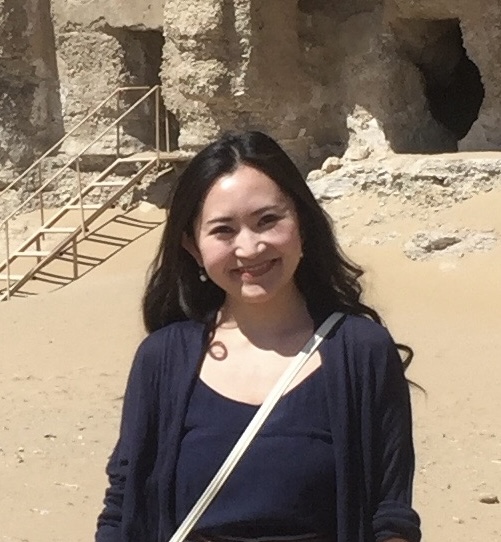 Daigengna Duoer is a historian specializing in religion in modern East and Inner Asia, with a particular focus on transnational Tibeto-Mongolian Buddhism in the twentieth century. She is an Assistant Professor in the Department of Religion at Boston University and teaches classes on Buddhism and Asian religions. She earned her Ph.D. in Religious Studies at the University of California, Santa Barbara, and M.A. in Buddhist Studies from the University of Toronto.
Daigengna Duoer is a historian specializing in religion in modern East and Inner Asia, with a particular focus on transnational Tibeto-Mongolian Buddhism in the twentieth century. She is an Assistant Professor in the Department of Religion at Boston University and teaches classes on Buddhism and Asian religions. She earned her Ph.D. in Religious Studies at the University of California, Santa Barbara, and M.A. in Buddhist Studies from the University of Toronto.
Her forthcoming book, “Buddhism Beyond the Nation and the Empire: Transnational Buddhists in Modern East and Inner Asia,” investigates Buddhism’s roles within and beyond the competing nation and empire-building projects that took place in early 20th century Inner Mongolia and Manchuria, regions sandwiched between the expansionist ambitions of Republican China, the Japanese Empire, and the Soviet Union. Her research has been supported by the Canadian Social Sciences and Humanities Research Council (SSHRC), Zeit-Stiftung Bucerius, the Mongolia Foundation, the Chiang Ching-Kuo Foundation, and the American Council of Learned Societies (ACLS) Robert H. N. Ho Family Foundation, amongst others.
Daigengna is a host for the New Books in East Asian Studies Channel, a channel on the New Books Network. In addition to the study of religion, Daigengna is also interested in the study of religion in game media. She is one of the founders of the GAMING+ Project, an online resource for game studies.
Ihsan Ghazal
 Dr. Ihsan Ghazal is a Lecturer in Science Education at BU Wheelock College of Education & Human Development. Before joining BU Wheelock, Dr. Ghazal taught a wide range of students, from K-12 to pre-service teachers for 10 years, and in different countries and contexts. With a diverse teaching experience in both Lebanon and the United States, Dr. Ghazal has developed a strong interest in the transformative power of systems thinking in science education. Her research focuses on how systems thinking can enhance students’ understanding of complex biological processes. Dr. Ghazal’s work has revealed significant insights into students’ reasoning about the immune and nervous systems, leading to improved curriculum and instructional methods.
Dr. Ihsan Ghazal is a Lecturer in Science Education at BU Wheelock College of Education & Human Development. Before joining BU Wheelock, Dr. Ghazal taught a wide range of students, from K-12 to pre-service teachers for 10 years, and in different countries and contexts. With a diverse teaching experience in both Lebanon and the United States, Dr. Ghazal has developed a strong interest in the transformative power of systems thinking in science education. Her research focuses on how systems thinking can enhance students’ understanding of complex biological processes. Dr. Ghazal’s work has revealed significant insights into students’ reasoning about the immune and nervous systems, leading to improved curriculum and instructional methods.
Patrece L. Joseph
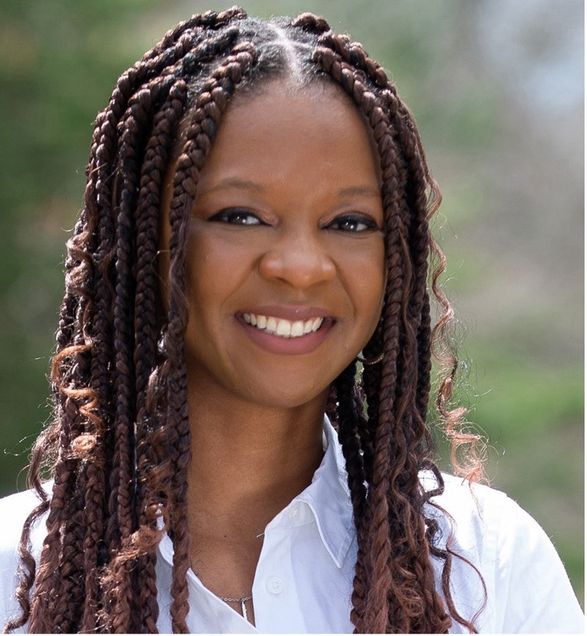 Patrece L. Joseph is an Assistant Professor in the Department of Community Health Sciences at Boston University’s School of Public Health. She is a mixed methods and community engaged researcher with expertise in adolescent health and development. She has 10 years of experience working at the intersection of public health and child and adolescent development. As a Boston native, having grown up in its Mattapan and Dorchester neighborhoods, she seeks to conduct research to improve conditions in the communities she grew up in and other marginalized communities like it. Her research seeks to (1) examine the impact of community exposures, such as gun violence, on mental health and substance use outcomes among Black and Latinx adolescents, and (2) develop and evaluate community-based interventions to address these exposures.
Patrece L. Joseph is an Assistant Professor in the Department of Community Health Sciences at Boston University’s School of Public Health. She is a mixed methods and community engaged researcher with expertise in adolescent health and development. She has 10 years of experience working at the intersection of public health and child and adolescent development. As a Boston native, having grown up in its Mattapan and Dorchester neighborhoods, she seeks to conduct research to improve conditions in the communities she grew up in and other marginalized communities like it. Her research seeks to (1) examine the impact of community exposures, such as gun violence, on mental health and substance use outcomes among Black and Latinx adolescents, and (2) develop and evaluate community-based interventions to address these exposures.
Dr. Joseph received her BA in Psychology from Bates College, MA in Child Development from Tufts University, and her PhD in Child Study and Human Development from Tufts University. She has completed fellowships at the U.S. Department of Health and Human Services’ Office of Minority Health and the University of North Carolina-Chapel Hill’s Department of Health Behavior.
Fatema Shafie Kohrassani
 Dr. Shafie Khorassani is an Assistant Professor of Biostatistics at the Boston University School of Public Health. Her statistical methodology research focuses on data integration methods for time-to-event outcomes, causal inference for observational data, and statistical methods for the evaluation of surrogate outcomes. Her work is motivated by understanding disparities in health outcomes using complex observational data sources.
Dr. Shafie Khorassani is an Assistant Professor of Biostatistics at the Boston University School of Public Health. Her statistical methodology research focuses on data integration methods for time-to-event outcomes, causal inference for observational data, and statistical methods for the evaluation of surrogate outcomes. Her work is motivated by understanding disparities in health outcomes using complex observational data sources.
Anna Lim
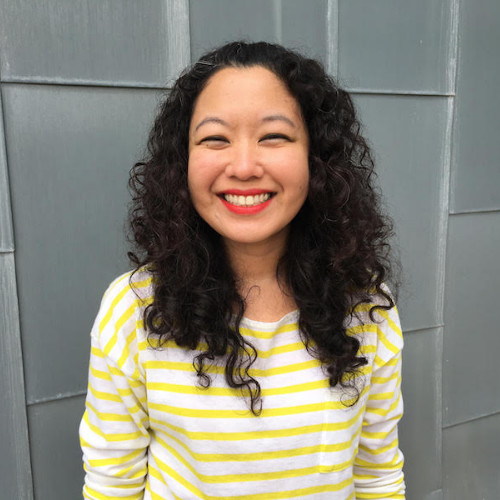 Dr. Anna Lim (siya/she series) is a Filipino-Chinese multilingual deaf-of-deaf queer femme immigrant linguist mama & wife from Manila, Philippines. She is currently based in Boston, Massachusetts as a lecturer in Deaf Studies at Boston University Wheelock College of Education and Human Development. She received her doctoral degree in Educational Studies from Boston University with her research on the manifestations and ramifications of raciolinguistic ideologies in the experiences of immigrant deaf students of color in the U.S. Deaf education system. Her research interests encompass multilingualism of deaf people of color, cognitive linguistics in heritage language acquisition and learning, linguistic justice, Tagalog linguistics, and Filipino history & culture education for deaf Filipinos.
Dr. Anna Lim (siya/she series) is a Filipino-Chinese multilingual deaf-of-deaf queer femme immigrant linguist mama & wife from Manila, Philippines. She is currently based in Boston, Massachusetts as a lecturer in Deaf Studies at Boston University Wheelock College of Education and Human Development. She received her doctoral degree in Educational Studies from Boston University with her research on the manifestations and ramifications of raciolinguistic ideologies in the experiences of immigrant deaf students of color in the U.S. Deaf education system. Her research interests encompass multilingualism of deaf people of color, cognitive linguistics in heritage language acquisition and learning, linguistic justice, Tagalog linguistics, and Filipino history & culture education for deaf Filipinos.
Alicia Mendez
 Alicia Mendez is a Research Assistant Professor at Boston University School of Social Work. Her research focuses on intergenerational trauma, child sexual abuse, and the child welfare system. She utilizes reflexive methodologies and strengths-based frameworks to investigate how trauma impacts each member of the parent-child dyad, how trauma patterns are broken intergenerationally, and how intergenerational posttraumatic growth evolves among families. As a macro social worker, she partners with public and private agencies to examine how policies are implemented and experienced at the organizational and client level. She aims to infuse parent and child voice into child welfare policy and practice.
Alicia Mendez is a Research Assistant Professor at Boston University School of Social Work. Her research focuses on intergenerational trauma, child sexual abuse, and the child welfare system. She utilizes reflexive methodologies and strengths-based frameworks to investigate how trauma impacts each member of the parent-child dyad, how trauma patterns are broken intergenerationally, and how intergenerational posttraumatic growth evolves among families. As a macro social worker, she partners with public and private agencies to examine how policies are implemented and experienced at the organizational and client level. She aims to infuse parent and child voice into child welfare policy and practice.
Lynette Strickland
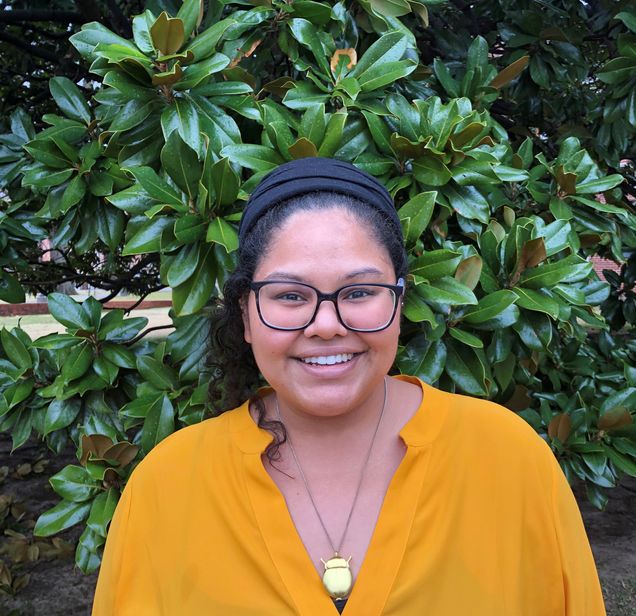 Lynette Strickland is an Assistant Professor in the biology department at Boston University and a Research Associate with the Smithsonian Tropical Research Institute. She received her B.S. in Marine Biology from Texas A&M University, and her Ph.D. from the University of Illinois at Urbana-Champaign. Her research, focusing on how ecological and genomic factors shape a naturally occurring color polymorphism in Neotropical beetles, has been published in journals such as Heredity and Evolutionary Biology. She also has published perspective pieces and commentaries on the need for inclusion of scientists who are Black, Indigenous, and people of color in STEM fields in journals such as Science and Nature Ecology & Evolution
Lynette Strickland is an Assistant Professor in the biology department at Boston University and a Research Associate with the Smithsonian Tropical Research Institute. She received her B.S. in Marine Biology from Texas A&M University, and her Ph.D. from the University of Illinois at Urbana-Champaign. Her research, focusing on how ecological and genomic factors shape a naturally occurring color polymorphism in Neotropical beetles, has been published in journals such as Heredity and Evolutionary Biology. She also has published perspective pieces and commentaries on the need for inclusion of scientists who are Black, Indigenous, and people of color in STEM fields in journals such as Science and Nature Ecology & Evolution
Temor “Tay” Amin-Arsala
 Temor “Tay” Amin-Arsala, OT, OTD, OTR (They/He) is a brand new Clinical Assistant Professor in Sargent College’s Dept. of Occupational Therapy. They recently completed their occupational therapy doctorate at Tufts University, where they have also been teaching adjunct for the last two years. As an occupational therapy practitioner, Temor has worked with ages across the lifespan, from pediatrics to older adults, but finds their “sweet spot” in mental health and community-based practice. Temor’s research agenda often explores the intersection of diversity, equity, inclusion, justice, anti-racism and occupational therapy, with an additional focus on LGBTQIA+ health. Outside of the workday, Temor finds joy in gardening in their backyard, crocheting stuffed animals, consuming LGBTQIA+ media in all forms, and attempting to recreate their Afghan grandmother’s delicious recipes (like Kabuli pilau) that they grew up eating.
Temor “Tay” Amin-Arsala, OT, OTD, OTR (They/He) is a brand new Clinical Assistant Professor in Sargent College’s Dept. of Occupational Therapy. They recently completed their occupational therapy doctorate at Tufts University, where they have also been teaching adjunct for the last two years. As an occupational therapy practitioner, Temor has worked with ages across the lifespan, from pediatrics to older adults, but finds their “sweet spot” in mental health and community-based practice. Temor’s research agenda often explores the intersection of diversity, equity, inclusion, justice, anti-racism and occupational therapy, with an additional focus on LGBTQIA+ health. Outside of the workday, Temor finds joy in gardening in their backyard, crocheting stuffed animals, consuming LGBTQIA+ media in all forms, and attempting to recreate their Afghan grandmother’s delicious recipes (like Kabuli pilau) that they grew up eating.
Pamela Zabala Ortiz
 Pamela Zabala Ortiz is Assistant Professor of Sociology at Boston University. She is a sociologist of race and migration, and her research interests include race making; identity and belonging; and transnational constructions of race with a focus on Blackness and latinidad. Pamela received her PhD and Masters degrees in Sociology from Duke University and her B.A. in Sociology and Africana Studies from Bowdoin College.
Pamela Zabala Ortiz is Assistant Professor of Sociology at Boston University. She is a sociologist of race and migration, and her research interests include race making; identity and belonging; and transnational constructions of race with a focus on Blackness and latinidad. Pamela received her PhD and Masters degrees in Sociology from Duke University and her B.A. in Sociology and Africana Studies from Bowdoin College.
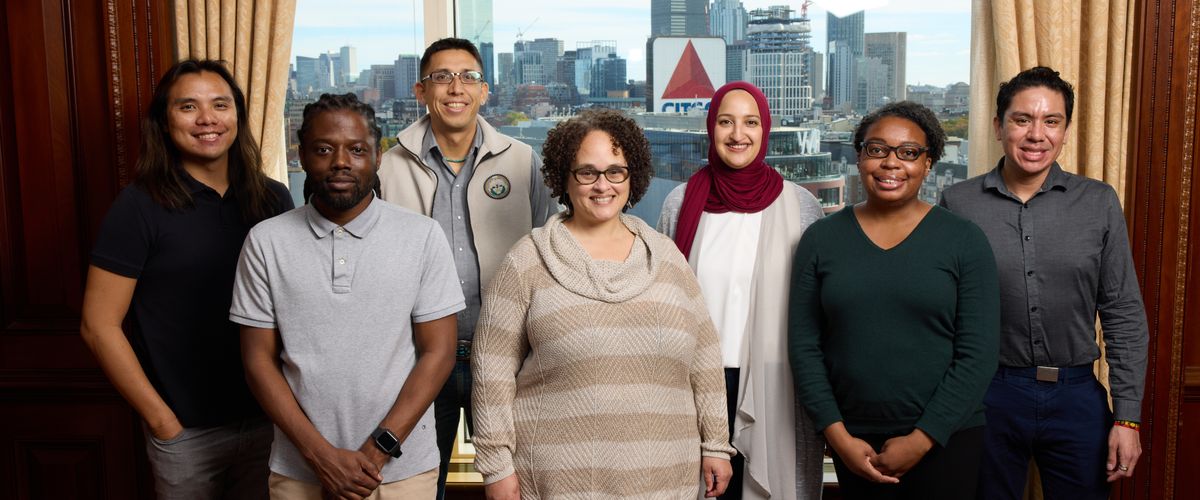
 Dr. Sofía Casasa (she/her) is an Assistant Professor in the Department of Biology at BU. She received her BS from the UNAM in Mexico (Universidad Nacional Autónoma de México) and completed her PhD and postdoctoral research at Indiana University. She joined BU in 2023, where her lab investigates evolution and development using insects. Her research aims to elucidate the evolution of developmental genetic and genomic mechanisms and their role in shaping phenotypic diversity.
Dr. Sofía Casasa (she/her) is an Assistant Professor in the Department of Biology at BU. She received her BS from the UNAM in Mexico (Universidad Nacional Autónoma de México) and completed her PhD and postdoctoral research at Indiana University. She joined BU in 2023, where her lab investigates evolution and development using insects. Her research aims to elucidate the evolution of developmental genetic and genomic mechanisms and their role in shaping phenotypic diversity. Daigengna Duoer is a historian specializing in religion in modern East and Inner Asia, with a particular focus on transnational Tibeto-Mongolian Buddhism in the twentieth century. She is an Assistant Professor in the Department of Religion at Boston University and teaches classes on Buddhism and Asian religions. She earned her Ph.D. in Religious Studies at the University of California, Santa Barbara, and M.A. in Buddhist Studies from the University of Toronto.
Daigengna Duoer is a historian specializing in religion in modern East and Inner Asia, with a particular focus on transnational Tibeto-Mongolian Buddhism in the twentieth century. She is an Assistant Professor in the Department of Religion at Boston University and teaches classes on Buddhism and Asian religions. She earned her Ph.D. in Religious Studies at the University of California, Santa Barbara, and M.A. in Buddhist Studies from the University of Toronto. Dr. Ihsan Ghazal is a Lecturer in Science Education at BU Wheelock College of Education & Human Development. Before joining BU Wheelock, Dr. Ghazal taught a wide range of students, from K-12 to pre-service teachers for 10 years, and in different countries and contexts. With a diverse teaching experience in both Lebanon and the United States, Dr. Ghazal has developed a strong interest in the transformative power of systems thinking in science education. Her research focuses on how systems thinking can enhance students’ understanding of complex biological processes. Dr. Ghazal’s work has revealed significant insights into students’ reasoning about the immune and nervous systems, leading to improved curriculum and instructional methods.
Dr. Ihsan Ghazal is a Lecturer in Science Education at BU Wheelock College of Education & Human Development. Before joining BU Wheelock, Dr. Ghazal taught a wide range of students, from K-12 to pre-service teachers for 10 years, and in different countries and contexts. With a diverse teaching experience in both Lebanon and the United States, Dr. Ghazal has developed a strong interest in the transformative power of systems thinking in science education. Her research focuses on how systems thinking can enhance students’ understanding of complex biological processes. Dr. Ghazal’s work has revealed significant insights into students’ reasoning about the immune and nervous systems, leading to improved curriculum and instructional methods. Patrece L. Joseph is an Assistant Professor in the Department of Community Health Sciences at Boston University’s School of Public Health. She is a mixed methods and community engaged researcher with expertise in adolescent health and development. She has 10 years of experience working at the intersection of public health and child and adolescent development. As a Boston native, having grown up in its Mattapan and Dorchester neighborhoods, she seeks to conduct research to improve conditions in the communities she grew up in and other marginalized communities like it. Her research seeks to (1) examine the impact of community exposures, such as gun violence, on mental health and substance use outcomes among Black and Latinx adolescents, and (2) develop and evaluate community-based interventions to address these exposures.
Patrece L. Joseph is an Assistant Professor in the Department of Community Health Sciences at Boston University’s School of Public Health. She is a mixed methods and community engaged researcher with expertise in adolescent health and development. She has 10 years of experience working at the intersection of public health and child and adolescent development. As a Boston native, having grown up in its Mattapan and Dorchester neighborhoods, she seeks to conduct research to improve conditions in the communities she grew up in and other marginalized communities like it. Her research seeks to (1) examine the impact of community exposures, such as gun violence, on mental health and substance use outcomes among Black and Latinx adolescents, and (2) develop and evaluate community-based interventions to address these exposures. Dr. Shafie
Dr. Shafie  Dr. Anna Lim (siya/she series) is a Filipino-Chinese multilingual deaf-of-deaf queer femme immigrant linguist mama & wife from Manila, Philippines. She is currently based in Boston, Massachusetts as a lecturer in Deaf Studies at Boston University Wheelock College of Education and Human Development. She received her doctoral degree in Educational Studies from Boston University with her research on the manifestations and ramifications of raciolinguistic ideologies in the experiences of immigrant deaf students of color in the U.S. Deaf education system. Her research interests encompass multilingualism of deaf people of color, cognitive linguistics in heritage language acquisition and learning, linguistic justice, Tagalog linguistics, and Filipino history & culture education for deaf Filipinos.
Dr. Anna Lim (siya/she series) is a Filipino-Chinese multilingual deaf-of-deaf queer femme immigrant linguist mama & wife from Manila, Philippines. She is currently based in Boston, Massachusetts as a lecturer in Deaf Studies at Boston University Wheelock College of Education and Human Development. She received her doctoral degree in Educational Studies from Boston University with her research on the manifestations and ramifications of raciolinguistic ideologies in the experiences of immigrant deaf students of color in the U.S. Deaf education system. Her research interests encompass multilingualism of deaf people of color, cognitive linguistics in heritage language acquisition and learning, linguistic justice, Tagalog linguistics, and Filipino history & culture education for deaf Filipinos. Alicia Mendez is a Research Assistant Professor at Boston University School of Social Work. Her research focuses on intergenerational trauma, child sexual abuse, and the child welfare system. She utilizes reflexive methodologies and strengths-based frameworks to investigate how trauma impacts each member of the parent-child dyad, how trauma patterns are broken intergenerationally, and how intergenerational posttraumatic growth evolves among families. As a macro social worker, she partners with public and private agencies to examine how policies are implemented and experienced at the organizational and client level. She aims to infuse parent and child voice into child welfare policy and practice.
Alicia Mendez is a Research Assistant Professor at Boston University School of Social Work. Her research focuses on intergenerational trauma, child sexual abuse, and the child welfare system. She utilizes reflexive methodologies and strengths-based frameworks to investigate how trauma impacts each member of the parent-child dyad, how trauma patterns are broken intergenerationally, and how intergenerational posttraumatic growth evolves among families. As a macro social worker, she partners with public and private agencies to examine how policies are implemented and experienced at the organizational and client level. She aims to infuse parent and child voice into child welfare policy and practice. Lynette Strickland is an Assistant Professor in the biology department at Boston University and a Research Associate with the Smithsonian Tropical Research Institute. She received her B.S. in Marine Biology from Texas A&M University, and her Ph.D. from the University of Illinois at Urbana-Champaign. Her research, focusing on how ecological and genomic factors shape a naturally occurring color polymorphism in Neotropical beetles, has been published in journals such as Heredity and Evolutionary Biology. She also has published perspective pieces and commentaries on the need for inclusion of scientists who are Black, Indigenous, and people of color in STEM fields in journals such as Science and Nature Ecology & Evolution
Lynette Strickland is an Assistant Professor in the biology department at Boston University and a Research Associate with the Smithsonian Tropical Research Institute. She received her B.S. in Marine Biology from Texas A&M University, and her Ph.D. from the University of Illinois at Urbana-Champaign. Her research, focusing on how ecological and genomic factors shape a naturally occurring color polymorphism in Neotropical beetles, has been published in journals such as Heredity and Evolutionary Biology. She also has published perspective pieces and commentaries on the need for inclusion of scientists who are Black, Indigenous, and people of color in STEM fields in journals such as Science and Nature Ecology & Evolution Temor “Tay” Amin-Arsala, OT, OTD, OTR (They/He) is a brand new Clinical Assistant Professor in Sargent College’s Dept. of Occupational Therapy. They recently completed their occupational therapy doctorate at Tufts University, where they have also been teaching adjunct for the last two years. As an occupational therapy practitioner, Temor has worked with ages across the lifespan, from pediatrics to older adults, but finds their “sweet spot” in mental health and community-based practice. Temor’s research agenda often explores the intersection of diversity, equity, inclusion, justice, anti-racism and occupational therapy, with an additional focus on LGBTQIA+ health. Outside of the workday, Temor finds joy in gardening in their backyard, crocheting stuffed animals, consuming LGBTQIA+ media in all forms, and attempting to recreate their Afghan grandmother’s delicious recipes (like Kabuli pilau) that they grew up eating.
Temor “Tay” Amin-Arsala, OT, OTD, OTR (They/He) is a brand new Clinical Assistant Professor in Sargent College’s Dept. of Occupational Therapy. They recently completed their occupational therapy doctorate at Tufts University, where they have also been teaching adjunct for the last two years. As an occupational therapy practitioner, Temor has worked with ages across the lifespan, from pediatrics to older adults, but finds their “sweet spot” in mental health and community-based practice. Temor’s research agenda often explores the intersection of diversity, equity, inclusion, justice, anti-racism and occupational therapy, with an additional focus on LGBTQIA+ health. Outside of the workday, Temor finds joy in gardening in their backyard, crocheting stuffed animals, consuming LGBTQIA+ media in all forms, and attempting to recreate their Afghan grandmother’s delicious recipes (like Kabuli pilau) that they grew up eating. Pamela Zabala Ortiz is Assistant Professor of Sociology at Boston University. She is a sociologist of race and migration, and her research interests include race making; identity and belonging; and transnational constructions of race with a focus on Blackness and latinidad. Pamela received her PhD and Masters degrees in Sociology from Duke University and her B.A. in Sociology and Africana Studies from Bowdoin College.
Pamela Zabala Ortiz is Assistant Professor of Sociology at Boston University. She is a sociologist of race and migration, and her research interests include race making; identity and belonging; and transnational constructions of race with a focus on Blackness and latinidad. Pamela received her PhD and Masters degrees in Sociology from Duke University and her B.A. in Sociology and Africana Studies from Bowdoin College.